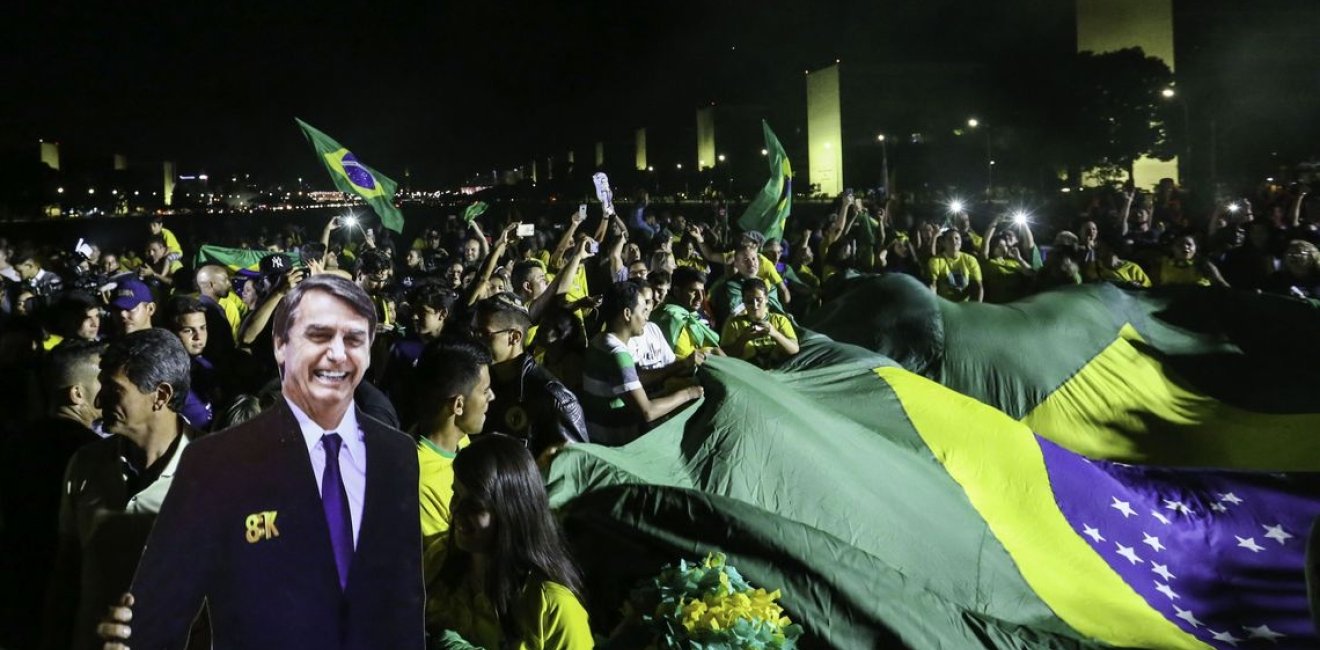
A blog of the Brazil Institute

Sergio Fausto is a political scientist and Executive-Director of the Fernando Henrique Cardoso Foundation. In “Correndo Riscos” he explains that the use and manipulation of fear by Bolsonaro’s campaign may aid his election, but will no longer serve him when it comes time to govern a country with such urgent challenges. To read the full article (in Portuguese) click here. The following is an English-language summary of Fausto’s article and reflects his opinions.
In a recent article published in Piauí, a Brazilian news magazine, political scientist Sergio Fausto writes that presidential candidate Jair Bolsonaro is riding a wave of fear, years in the making, of escalating urban violence and crime, social change, and even communism. He has managed to attract swaths of the urban poor and middle classes who are most affected by daily violence; to win the influential endorsements of evangelical pastors who morally oppose social debates on gender, sexuality, and nontraditional families; and to appeal to upper class elites by way of reviving a “red scare.” Stirring up these sentiments with bursts of disinformation and inflammatory rhetoric, Bolsonaro has leveraged the Brazilian public’s greatest concerns into an expected electoral triumph: one that many political analysts, just a few months ago, said was impossible.
Although it is likely to get Bolsonaro elected, this manipulation of fear will not help him successfully lead the country forward. This strategy may, however, produce some political advantages, as Trump has demonstrated in the United States. In the face of complex problems, playing to his base and spreading disinformation could help Bolsonaro circumvent meaningful (and necessary) reforms in favor of simple solutions. Bolsonaro can be expected to advance a conservative social agenda and foreseeably even gather support in Congress to overturn Brazil’s 2003 Disarmament Statute, which heavily restricts gun ownership in Brazil.
The tension between the judiciary and political powers will likely increase as parts of society and the government resist the conservative “offensive” through a movement of “democratic defense.” A wide-reaching resistance front against backsliding on human rights will form and thrive with much more space and more allies than was possible during the military dictatorship (1964-1985). Leadership in the armed forces will have common cause with resistance movements in preventing the proliferation of gun ownership and even some evangelicals, in their diversity of opinions, will find reason to resist the rightward push. The more activists that recognize this potential for cooperation—with the military, evangelicals, and other conservative groups—and that tolerate a difference in beliefs, the more productive this “democratic defense” will be. Equally important will be combatting fake news through “clarification, not the production of fake news on the other end of the spectrum,” argues Fausto.
Environmental legislation is another area threatened by a probable Bolsonaro government. Activists will need to make peace with traditional enemies in the agribusiness and mining sectors to protect the environment, while also remembering that some environmental degradation may be a necessary trade-off for economic development and the promotion of social well-being. Regardless, Bolsonaro must come to terms with a foreign policy truth in this area: “The United States, currently on a dangerous, nationalistic ego trip, has the luxury to leave the Paris Accord, as it did. Brazil would see doors close to its commodities exports, with grave consequences for our economy’s external and internal equilibrium.”
To effectively respond to the “drama of unemployment and impoverishment” facing tens of millions of Brazilians, a Bolsonaro government must address fiscal and tax reforms, regulations, international trade, and privatizations—a task which, despite the “spasms of euphoria” in financial markets, remains uncertain. Furthermore, signs of infighting within the Bolsonaro administration suggest internal dynamics could hamper the accomplishment of these goals.
Fausto concludes that rapidly built “myths” such as Bolsonaro tend not to last long once in power, especially when facing difficult economic conditions and offering only simple solutions to complex issues, such as those burdening Brazil at present. The real question is: “How will Bolsonaro react to landing on the rocky ground of reality?” This new period will demand the protection of rights won in the past three decades as well as the promotion of dialogue between the election’s winners and losers. “Brazil needs a liberal center-right as much as a democratic center-left” but, at the moment, neither exists. These will have to be created “out of the debris of the Bolsonaro earthquake.”
Image by Agência Brasil
Author
Explore More in Brazil Builds
Browse Brazil Builds
They're Still Here: Brazil's unfinished reckoning with military impunity



